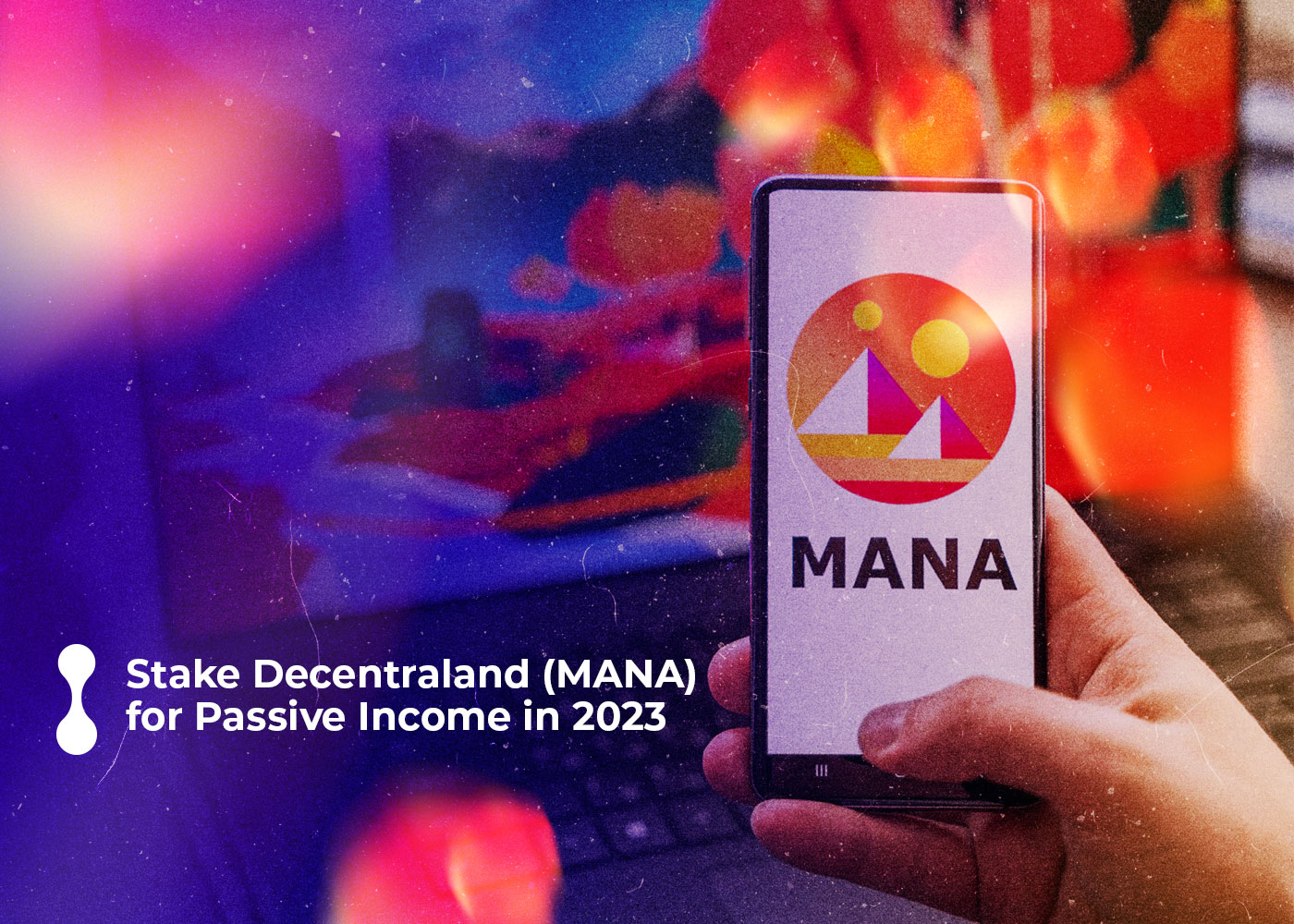Individuals can now earn passive income from digital land parcels in the metaverse by renting them out to others. When investors consider earning passive income using cryptocurrency, they generally think of staking. Staking MANA and other tokens is a viable investment option; however, there are alternative methods to generate passive income, especially for those who actively participate in virtual metaverse worlds such as Decentraland (MANA). In early December, Decentraland introduced a new passive-income opportunity that may interest metaverse users – virtual property renting for digital landowners.
Essentially, if someone already owns digital land in the virtual world of Decentraland, they can now rent it to others who may require a short-term presence in the metaverse for festivals, product launches, or community events. This is an intriguing concept because it operates in a comparable manner to real-world property renting, which has always been a prominent source of passive income. So, will this metaverse-inspired passive income opportunity be suitable for investors?
What is Decentraland (MANA)?
Decentraland (MANA) is a virtual reality platform that operates in a decentralized manner, enabling users to create, explore, and monetize content and applications. MANA is the native cryptocurrency of Decentraland, which uses blockchain technology to facilitate the ownership, development, and trade of virtual real estate.
In the vast and immersive 3D world of Decentraland, users can interact with each other, attend live events and exhibitions, play games, and even create their own virtual experiences. The platform features a marketplace where users can buy and sell digital assets such as virtual real estate and wearables.
Decentraland operates on the Ethereum blockchain, utilizing smart contracts to ensure the security and transparency of all transactions. As a decentralized platform, it is not controlled by any central authority, and its open-source architecture allows developers to build on top of it and create innovative experiences and applications for its users.

How does Land Renting in Decentraland Work?
Decentraland (MANA) land renting enables users to purchase virtual land in the Decentraland metaverse and rent it out to others. Users can set their own rental terms, including rental duration, price, and rules for land use. Renters can then use the land for various activities, such as hosting events, showcasing digital art, or building their own virtual experiences.
To start renting land in Decentraland, users must first purchase MANA, the platform’s native cryptocurrency, from a cryptocurrency exchange. Then, using an Ethereum-compatible wallet, users can purchase virtual land on the Decentraland marketplace.
Once users own virtual land, they can list it for rent on the Decentraland marketplace, where other users can browse and discover available properties. When renters are interested in a particular property, they can contact the landowner to arrange a rental agreement. Smart contracts facilitate the rental agreement, ensuring the terms are enforced on the blockchain.
After the rental period, the land reverts back to the original owner unless the renter renews the rental agreement. In summary, Decentraland‘s land renting provides an opportunity for users to earn passive income from their virtual property while promoting creative and social interactions within the metaverse.
The Risks Seem High
Purchasing virtual land in the metaverse may seem intriguing, but it comes with a significant hurdle to entry. If you’re new to a metaverse world such as Decentraland, you’ll need to learn about how these worlds operate and how they differ from traditional role-playing video games. Additionally, you’ll need to acquaint yourself with the prices of metaverse land, which can range from a few thousand dollars to over $1 million, and study a map of Decentraland, which has over 90,000 land parcels.
Since all transactions within Decentraland take place using MANA, the in-game governance token, your rental income will come in the form of Decentraland tokens. This carries some risk and volatility due to possible price fluctuations in metaverse cryptos. Therefore, you’ll have two concerns: declining land prices and potential currency devaluation.
In late 2021, the metaverse was the latest craze, with Facebook even rebranding itself as Meta Platforms (META). Celebrities and major brands announced their participation in the metaverse, and the future appeared boundless. The first-ever Metaverse Festival, headlined by Paris Hilton, featured over 80 artists within Decentraland. However, things look a lot more uncertain for the Decentraland token in 2022, as its price has dropped by 88% this year.
But the Rewards are Hefty as Well
Nonetheless, this high-risk scenario also presents the possibility of substantial rewards. For instance, consulting firm McKinsey predicts that the metaverse will represent an opportunity worth nearly $1 trillion within a few years. There is also significant interest in understanding what the metaverse is and how to engage with it. According to Capgemini, a multinational information-technology services and consulting firm headquartered in Paris, over 90% of consumers are interested in the metaverse.
According to experts, the Decentraland passive-income opportunity boils down to this: enter early while people are still navigating the metaverse, buy land while it’s still affordable, and then develop your land into something that brands and creative influencers will want to use for one-off events. If you’re fortunate enough, you might find brands, artists, musicians, or small businesses eager to rent Decentraland land parcels from you for brand launches, festivals, or conferences.
Staking MANA Seems More Viable for Investors
Currently, this passive income opportunity appears to be too fluctuous to draw the attention of casual investors, and it requires too much upfront investment to be feasible for most people who are new to crypto. The current average cost of a Decentraland parcel of land is $2,380.
Unless you’re already an active participant in Decentraland with an established network, establishing a dependable source of passive income might take some time in Decentraland. Virtual property rentals differ from real-world rentals, where you can secure rent for a year at a time. Even if well-known DJs, fashion designers, and streetwear brands are clamoring to rent your Decentraland property, it appears that you’ll need to exert a significant amount of effort to establish recurring rental income.
Earning passive income by staking MANA tokens seems like a simpler option. Various popular cryptocurrency platforms currently offer staking rewards of 3% on Decentraland tokens. While it may not seem like a huge return, it is effortless and requires minimal effort.
Therefore, for now, virtual property rentals are a profitable yet somewhat risky source of passive income. While Decentraland has the potential to be a promising cryptocurrency to invest in for a possible rebound in 2023, there needs to be more activity within the metaverse before recommending the Decentraland token as a non-risky investment.
Conclusion
To sum up, staking Decentraland (MANA) tokens is a feasible approach to earning passive income in 2023. MANA staking and land renting offer an effortless way to receive returns on investment. Although virtual property rentals may not currently be the most pragmatic method of generating passive income in Decentraland, the platform is constantly expanding and changing, presenting fresh prospects for users to monetize their virtual experiences. The Decentraland platform is continuously evolving, with new opportunities emerging for users to monetize their virtual experiences. As with any investment decision, it is important for investors to conduct their own research and take their individual circumstances into account.
